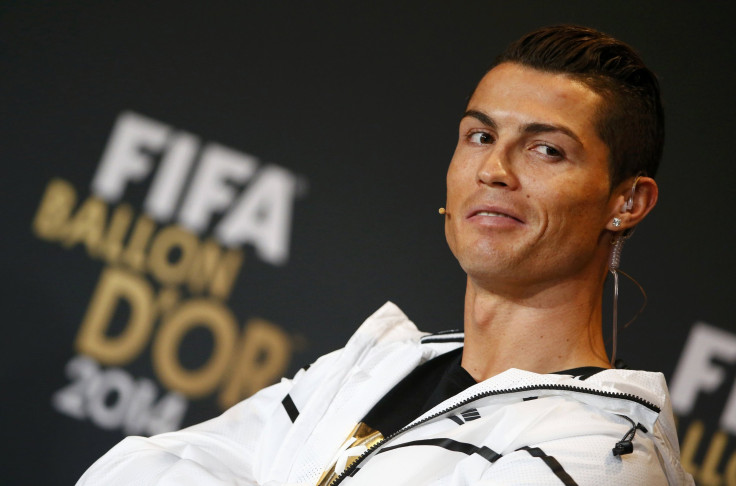Why Cristiano Ronaldo Will Beat Lionel Messi For The 2014 FIFA Ballon D’Or

Lionel Messi may remain the greatest player of his generation, but the FIFA Ballon d’Or Gala on Monday will surely recognize Cristiano Ronaldo as the best of 2014. Messi continues to be brilliant, but by his previously unimaginable high standards, 2014 has not been a year to savor. Ronaldo, meanwhile, despite now at the age of 29 and having a game more dependent on pure physicality than Messi, is, extraordinarily, getting better still.
His statistics are frightening, having scored 56 goals in 51 appearances for Real Madrid. Most notably, he scored a record number to help the Spanish giants claim the ultimate prize -- an unprecedented 10th European Cup. Six years after he last triumphed in the competition with Manchester United and five years after he fulfilled his dream of joining Madrid, scoring the final goal in Lisbon was Ronaldo’s crowning moment.
It was his incredible pace and directness that encapsulated Real Madrid becoming one of the most thrilling counter-attacking teams in recent memory, notably destroying Bayern Munich in the Champions League semifinals. But he also more than played his part in Madrid being able to adapt to a more possession-orientated approach. Still criticized for being selfish by many, Ronaldo provided 21 assists for his teammates in 2014.
The only disappointment came when his participation in the World Cup was hampered by injury and Portugal crashed out calamitously at the group stage. It was reasonable to have doubts that this might be the start of his physical decline. Instead, he came back at the start of this season stronger than ever. Culminating in lifting the Club World Cup last month, Real Madrid went on a Spanish-record 22-game winning run, in no small part down to Ronaldo’s 28 goals. Simply put, this has been Ronaldo’s year.
In a World Cup year, there is always a strong case for the star of the victors to be recognized. Manuel Neuer starred in Brazil and is the latest name vying to end Ronaldo-Messi duopoly. His place is certainly merited among the final three. The evolution of his game and his expansion of the role of the goalkeeper saw him crucially sweep up danger behind a Germany defense that was rendered vulnerable on numerous occasions en route to lifting the trophy. It is rare that a goalkeeper enjoys the type of individual recognition usually reserved for goal-scorers and goal-creators. Neuer, though, is much more than a goalkeeper. Yet it might feel like over compensation for the often unheralded work of the lonely man between the posts were Neuer to deny Ronaldo.
Arguably, though, the Bayern Munich stopper has a stronger case than Messi. By any other standard, Messi has been outstanding in 2014, scoring at very close to a goal-per-game, the type of feat considered other-worldly before he and Ronaldo changed the landscape in recent years. He largely delivered at the World Cup, too, almost single-handedly dragging Argentina through the opening rounds. But there as it has been the case through much of the year, Messi’s contribution was more about moments than dominating matches as he did at his peak. Of course, amid the hoopla for individual prestige, this is a team game, and the structure around Messi at Barcelona, in particular, has been nowhere near as solid and coherent as in previous years. This was, after all, the first year since 2008 in which Messi failed to lift any silverware.
The Ballon d’Or, it must be said, is also in large part a fame-driven personality contest, a fact that makes Ronaldo an even stronger favorite to triumph over not only the far lower-profile Neuer but also Messi. For many years Ronaldo and Messi were portrayed as black and white. Messi was the shy, choir-boy-like product of a Barcelona’s youth system that drilled home the idea that team always comes before individual. On the other hand, Ronaldo looked like he had spent more time in front of a mirror than in a team talk before going out on the pitch, took unprecedented numbers of shots and threw tantrums when things didn’t go his way.
The readjustment of Messi’s image has now altered that dynamic. Now it is Messi who is on a dysfunctional team, with the power he demands, regardless that much of that is down to his incredible ability, being seen as one of the causes. Just last week, he missed a training session in front of Barcelona’s fans, reportedly due to a bust-up with coach Luis Enrique. While stars like Zlatan Ibrahimovic and David Villa have failed to integrate into Messi’s team at Barcelona, Ronaldo and Madrid have become better following the arrival of the player who usurped him as the most expansive in history -- Gareth Bale.
Of course, the reality regarding both players is far more nuanced, but it is the perception that counts at the Ballon d’Or. And on that count, as well as for what he has done on the pitch, Ronaldo will surely walk away from Zurich with his third Ballon d’Or, setting up a doubtless inevitable showdown in 12 months’ time when Ronaldo will try to equal Messi’s four awards.
© Copyright IBTimes 2025. All rights reserved.





















